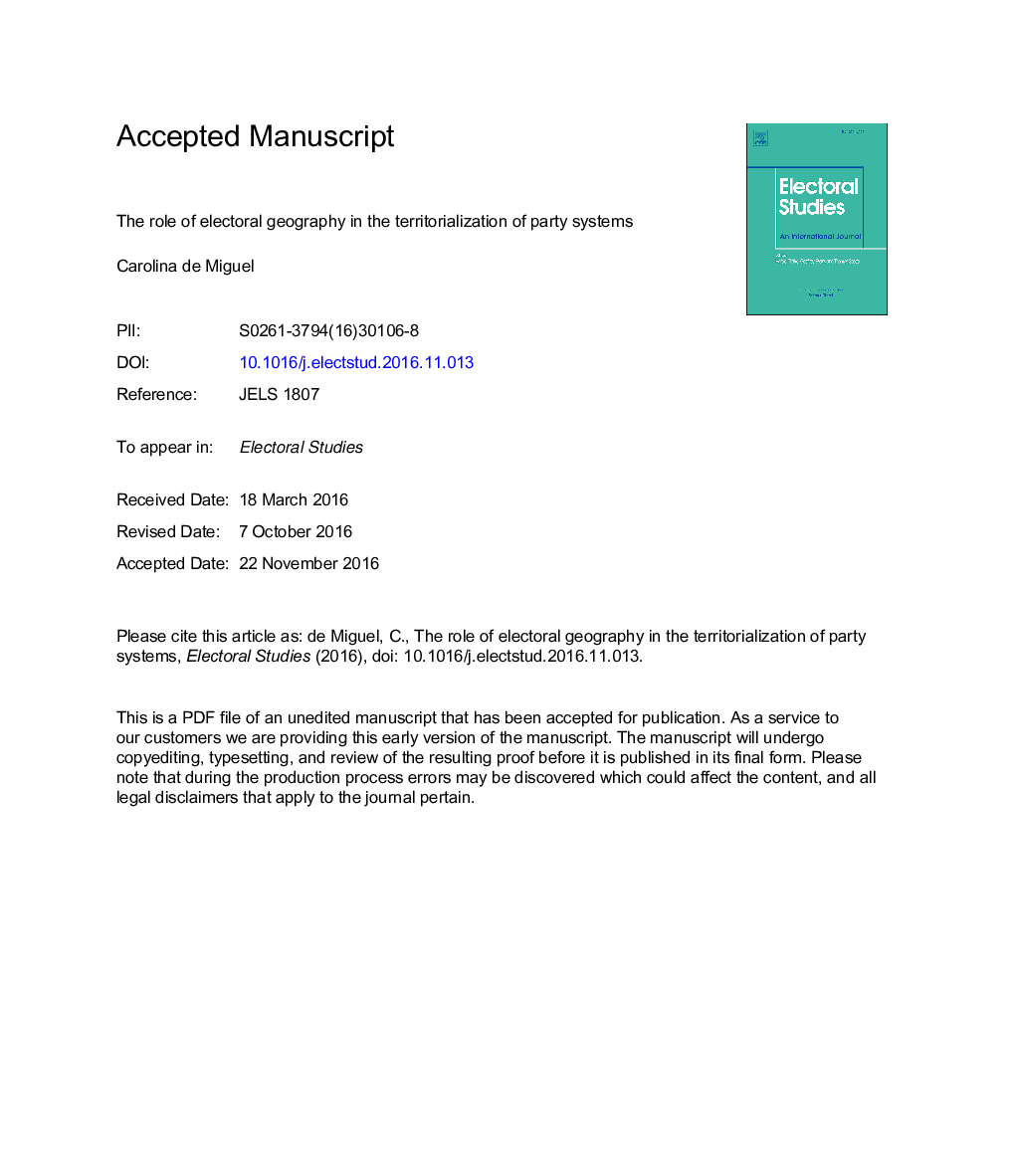| Article ID | Journal | Published Year | Pages | File Type |
|---|---|---|---|---|
| 5115572 | Electoral Studies | 2017 | 48 Pages |
Abstract
When does a country's social structure foster the development of territorialized party systems? This article argues that electoral geography - defined as the interaction between the geography of social diversity and electoral rules- is key to answering this question. I make two claims: first, the impact of geographically concentrated diversity on party system territorialization depends on the proportionality of electoral rules. Second, the types of geographic cleavages (ethnic versus economic) and whether they are overlapping or cross-cutting also affects the likelihood of party system territorialization (conditional on the electoral system). I test these claims with an original dataset measuring party system territorialization in 382 elections across 60 countries that also includes comparable cross-national measures of different types of geographically concentrated diversity (language, race, religion and income). The main conclusion is that proportional electoral systems and cross-cutting cleavages can act as a powerful constraint on the translation of territorial ethnic cleavages into territorialized party systems.
Related Topics
Social Sciences and Humanities
Social Sciences
Geography, Planning and Development
Authors
Carolina de Miguel,
